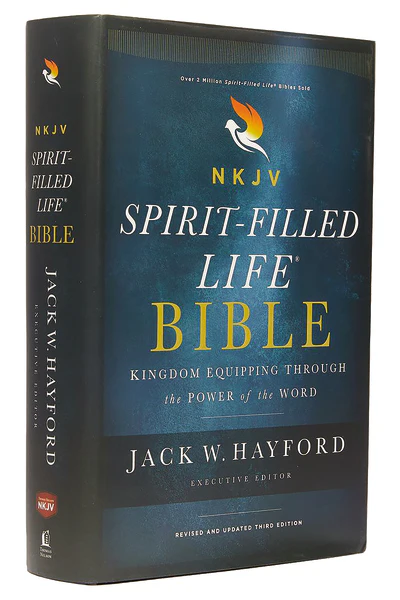Ecclesiastes 5
New King James Version
Fear God, Keep Your Vows
5 Walk (A)prudently when you go to the house of God; and draw near to hear rather (B)than to give the sacrifice of fools, for they do not know that they do evil.
2 Do not be (C)rash with your mouth,
And let not your heart utter anything hastily before God.
For God is in heaven, and you on earth;
Therefore let your words (D)be few.
3 For a dream comes through much activity,
And (E)a fool’s voice is known by his many words.
4 (F)When you make a vow to God, do not delay to (G)pay it;
For He has no pleasure in fools.
Pay what you have vowed—
5 (H)Better not to vow than to vow and not pay.
6 Do not let your (I)mouth cause your flesh to sin, (J)nor say before the messenger of God that it was an error. Why should God be angry at your [a]excuse and destroy the work of your hands? 7 For in the multitude of dreams and many words there is also vanity. But (K)fear God.
The Vanity of Gain and Honor
8 If you (L)see the oppression of the poor, and the violent [b]perversion of justice and righteousness in a province, do not marvel at the matter; for (M)high official watches over high official, and higher officials are over them.
9 Moreover the profit of the land is for all; even the king is served from the field.
10 He who loves silver will not be satisfied with silver;
Nor he who loves abundance, with increase.
This also is vanity.
11 When goods increase,
They increase who eat them;
So what profit have the owners
Except to see them with their eyes?
12 The sleep of a laboring man is sweet,
Whether he eats little or much;
But the abundance of the rich will not permit him to sleep.
13 (N)There is a severe evil which I have seen under the sun:
Riches kept for their owner to his hurt.
14 But those riches perish through [c]misfortune;
When he begets a son, there is nothing in his hand.
15 (O)As he came from his mother’s womb, naked shall he return,
To go as he came;
And he shall take nothing from his labor
Which he may carry away in his hand.
16 And this also is a severe evil—
Just exactly as he came, so shall he go.
And (P)what profit has he (Q)who has labored for the wind?
17 All his days (R)he also eats in darkness,
And he has much sorrow and sickness and anger.
18 Here is what I have seen: (S)It is good and fitting for one to eat and drink, and to enjoy the good of all his labor in which he toils under the sun all the days of his life which God gives him; (T)for it is his [d]heritage. 19 As for (U)every man to whom God has given riches and wealth, and given him power to eat of it, to receive his [e]heritage and rejoice in his labor—this is the (V)gift of God. 20 For he will not dwell unduly on the days of his life, because God keeps him busy with the joy of his heart.
Footnotes
- Ecclesiastes 5:6 Lit. voice
- Ecclesiastes 5:8 wresting
- Ecclesiastes 5:14 Lit. bad business
- Ecclesiastes 5:18 Lit. portion
- Ecclesiastes 5:19 Lit. portion
Numbers 6
New King James Version
The Law of the Nazirite
6 Then the Lord spoke to Moses, saying, 2 “Speak to the children of Israel, and say to them: ‘When either a man or woman [a]consecrates an offering to take the vow of a Nazirite, (A)to separate himself to the Lord, 3 (B)he shall separate himself from wine and similar drink; he shall drink neither vinegar made from wine nor vinegar made from similar drink; neither shall he drink any grape juice, nor eat fresh grapes or raisins. 4 All the days of his [b]separation he shall eat nothing that is produced by the grapevine, from seed to skin.
5 ‘All the days of the vow of his separation no (C)razor shall come upon his head; until the days are fulfilled for which he separated himself to the Lord, he shall be holy. Then he shall let the locks of the hair of his head grow. 6 All the days that he separates himself to the Lord (D)he shall not go near a dead body. 7 (E)He shall not [c]make himself unclean even for his father or his mother, for his brother or his sister, when they die, because his separation to God is on his head. 8 (F)All the days of his separation he shall be holy to the Lord.
9 ‘And if anyone dies very suddenly beside him, and he defiles his consecrated head, then he shall (G)shave his head on the day of his cleansing; on the seventh day he shall shave it. 10 Then (H)on the eighth day he shall bring two turtledoves or two young pigeons to the priest, to the door of the tabernacle of meeting; 11 and the priest shall offer one as a sin offering and the other as a burnt offering, and make atonement for him, because he sinned in regard to the corpse; and he shall sanctify his head that same day. 12 He shall consecrate to the Lord the days of his separation, and bring a male lamb in its first year (I)as a trespass offering; but the former days shall be [d]lost, because his separation was defiled.
13 ‘Now this is the law of the Nazirite: (J)When the days of his separation are fulfilled, he shall be brought to the door of the tabernacle of meeting. 14 And he shall present his offering to the Lord: one male lamb in its first year without blemish as a burnt offering, one ewe lamb in its first year without blemish (K)as a sin offering, one ram without blemish (L)as a peace offering, 15 a basket of unleavened bread, (M)cakes of fine flour mixed with oil, unleavened wafers (N)anointed with oil, and their grain offering with their (O)drink offerings.
16 ‘Then the priest shall bring them before the Lord and offer his sin offering and his burnt offering; 17 and he shall offer the ram as a sacrifice of a peace offering to the Lord, with the basket of unleavened bread; the priest shall also offer its grain offering and its drink offering. 18 (P)Then the Nazirite shall shave his consecrated head at the door of the tabernacle of meeting, and shall take the hair from his consecrated head and put it on the fire which is under the sacrifice of the peace offering.
19 ‘And the priest shall take the (Q)boiled shoulder of the ram, one (R)unleavened cake from the basket, and one unleavened wafer, and (S)put them upon the hands of the Nazirite after he has shaved his consecrated hair, 20 and the priest shall wave them as a wave offering before the Lord; (T)they are holy for the priest, together with the breast of the wave offering and the thigh of the heave offering. After that the Nazirite may drink wine.’
21 “This is the law of the Nazirite who vows to the Lord the offering for his separation, and besides that, whatever else his hand is able to provide; according to the vow which he takes, so he must do according to the law of his separation.”
The Priestly Blessing
22 And the Lord spoke to Moses, saying: 23 “Speak to Aaron and his sons, saying, ‘This is the way you shall bless the children of Israel. Say to them:
24 “The Lord (U)bless you and (V)keep you;
25 The Lord (W)make His face shine upon you,
And (X)be gracious to you;
26 (Y)The Lord [e]lift up His countenance upon you,
And (Z)give you peace.” ’
27 (AA)“So they shall [f]put My name on the children of Israel, and (AB)I will bless them.”
Footnotes
- Numbers 6:2 Or makes a difficult vow
- Numbers 6:4 Separation as a Nazirite
- Numbers 6:7 By touching a dead body
- Numbers 6:12 void
- Numbers 6:26 Look upon you with favor
- Numbers 6:27 invoke
Scripture taken from the New King James Version®. Copyright © 1982 by Thomas Nelson. Used by permission. All rights reserved.
Bible Gateway Recommends






